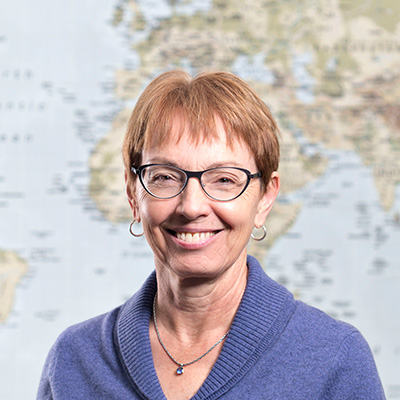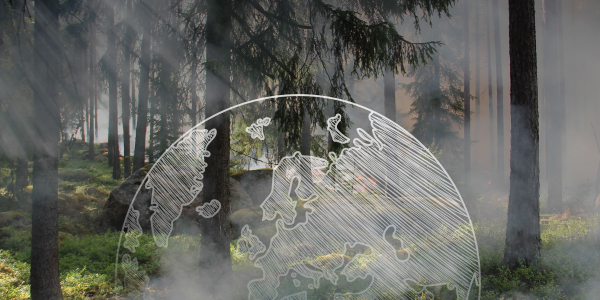The effects of climate change on human health are happening now, not off in the future: Rising seas, warmer temperatures and changing rainfall patterns are already causing injuries, illnesses and deaths. The impacts are significant and range from an increase in the number of people exposed to heatwaves to a growing geographic range for mosquito-borne diseases such as dengue, according to recent findings published in The Lancet, co-authored by SPH Professor and former Dean Howard Frumkin.

“Climate change is altering our health, and will be a defining challenge for the graduates of the UW School of Public Health,” says Kristie Ebi, director of the School’s Center for Health and the Global Environment, or CHanGE. “Interventions to protect, preserve and promote population health will differ from what was effective in the past.”
CHanGE works on the forefront of understanding and managing these threats. One of the few university research centers of its kind, the center is a partnership between the Departments of Environmental and Occupational Health Sciences and of Global Health, bridging the Schools of Public Health and Medicine.
Since the center began in 2014, projects have included measuring the human health consequences of climate change, improving resilience of individuals and communities to environmental shocks, and working with governments to lessen the likely impacts on population health. CHanGE also works to clarify the health benefits of efforts to reduce greenhouse gas emissions, such as reducing air pollution from coal-fired power plants or increasing biking and walking instead of driving cars.
One emerging concern is nutrition. As carbon dioxide in the atmosphere increases, the nutritional quality of staple crops such as rice and wheat will decline, with less protein, iron and zinc. Already, roughly 800 million people worldwide don’t have access to sufficient food and two billion fail to get essential vitamins and minerals from their diet. Deficiencies in iron and zinc could reduce the body’s ability to defend against disease and lead to higher rates of mortality.
“These changes in the quality and quantity of cereal crops could put millions of people, especially those in low-income communities, in greater danger of nutrient deficiency,” says Ebi, who is also professor of global health and of environmental and occupational health sciences. Climate change hits the poorest and most vulnerable communities the hardest, further driving health inequities.
Ebi, who has more than 20 years of experience in the field of climate change and health, works in low- and middle-income countries in Africa, Asia and the Pacific on building their capacity to understand and manage the health risks of climate change. She drafted guidelines for the World Health Organization and development partners to help governments and local communities incorporate the health risks of climate change into ongoing and new policies and programs.
CHanGE research coordinator Christopher Boyer, a recent Department of Global Health MPH graduate, is using these guidelines to support the Pacific island countries of Kiribati, Solomon Islands, Tuvalu and Vanuatu, which are particularly vulnerable to the effects of climate change.

CHanGE Co-Director Jeremy Hess studies the epidemiology of extreme heat and strategies for increasing the resilience of individuals and communities. “We clarify what kind of vulnerabilities communities face, and how the public health and health delivery systems may be able to reduce those vulnerabilities,” says Hess, an associate professor of emergency medicine, environmental and occupational health sciences and global health. He used this knowledge to support developing and implementing a heat early-warning and response system in Ahmedabad, India; efforts are underway to use the lessons learned and best practices to deploy similar systems in other cities in the region.
To prepare for the magnitude and pattern of future health burdens, which could range from water scarcity to more intense wildfires and natural disasters, CHanGE experts are modeling different environmental and socioeconomic scenarios. Cory Morin, acting assistant professor of global health, uses data-driven models to simulate mosquito population and pathogen transmission dynamics to forecast the risk of vector borne diseases. His recent work focuses on mosquito transmitted pathogens, including dengue, chikungunya and Zika viruses. Morin’s models suggest that, as the climate changes, several areas in the southeastern U.S. may see elevated risk of transmission.
“Climate can strongly influence the population dynamics of disease vectors and impact disease ecology,” says Morin. “It’s important to know how transmission risk could change over time, as we will eventually have to shift surveillance and preparation for vector control.”
Cases of West Nile virus, which can cause fever, body aches and swollen lymph glands, have reached Washington state, just east of the Cascade Mountains. The question, according to Morin, isn’t if the virus will reach Seattle and King County, but rather when.
Sam Sellers, a post-doctoral researcher, is developing projections of how health burdens, particularly mortality, could change under different socioeconomic and other assumptions about the future. These projections can be used to investigate how vulnerability to global change could alter under different assumptions of how future societies could develop, how those vulnerabilities could affect the magnitude and pattern of risks, and the level of ambition required for mitigation and adaptation to reduce consequences for population health.
CHanGE faculty are also training the next generation of scholars and leaders in global change and health. The center developed an undergraduate course that introduces students to global environmental changes, including ozone depletion and biodiversity loss, and their impact on health and well-being. A graduate course provides students with foundational knowledge of the health risks of climate change, approaches to managing those risks, and the health benefits of mitigation policies. UW graduate students can also enroll in the center’s Graduate Certificate in Climate Change and Health.
